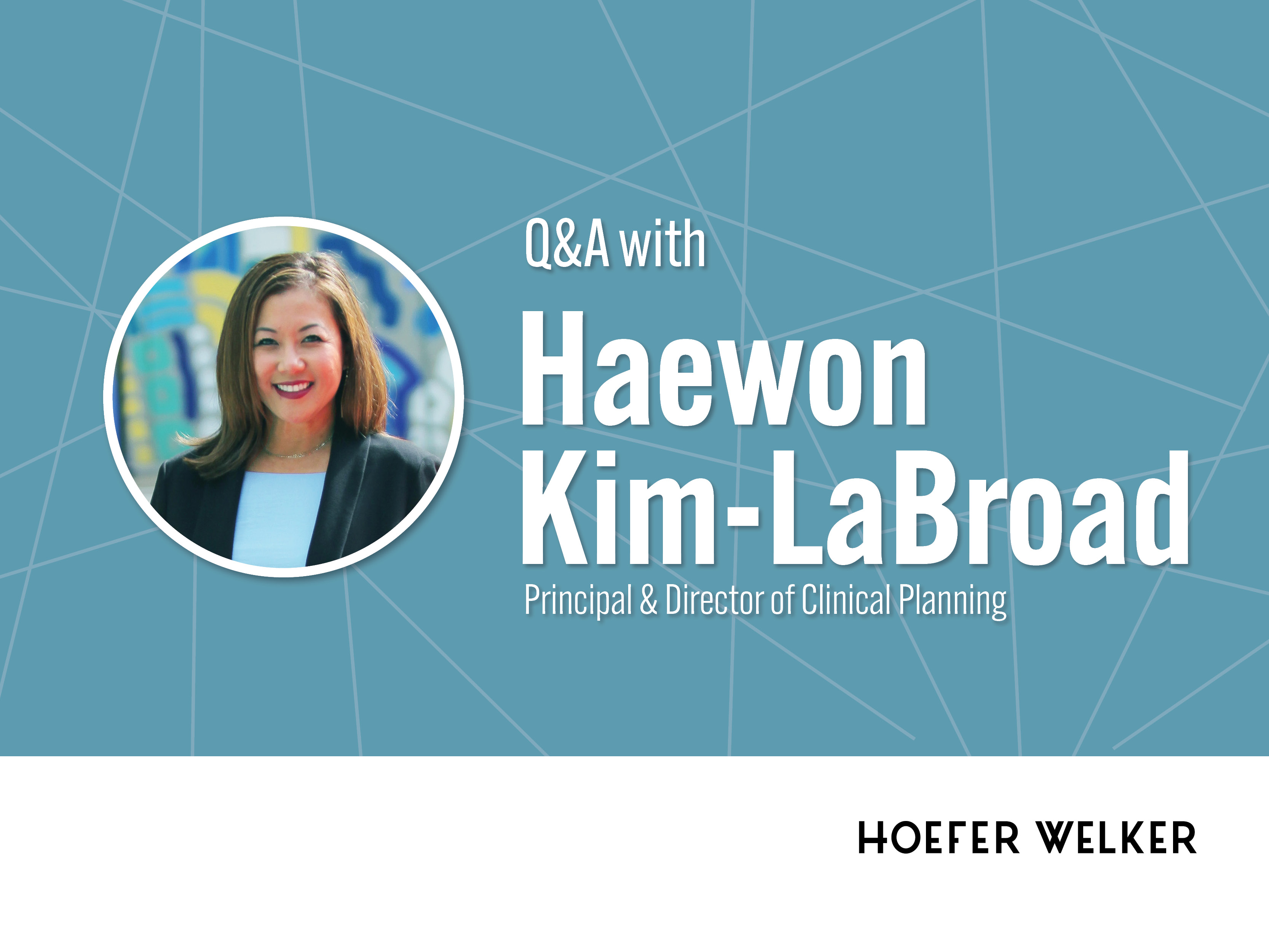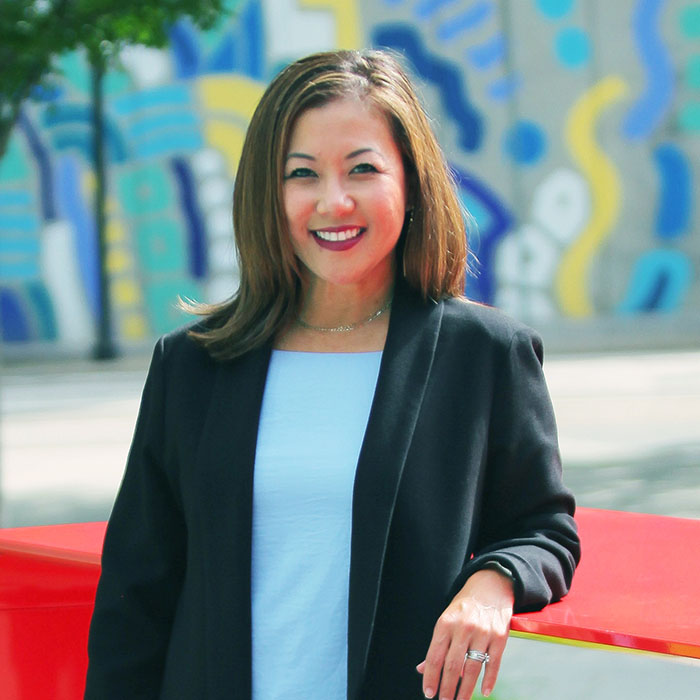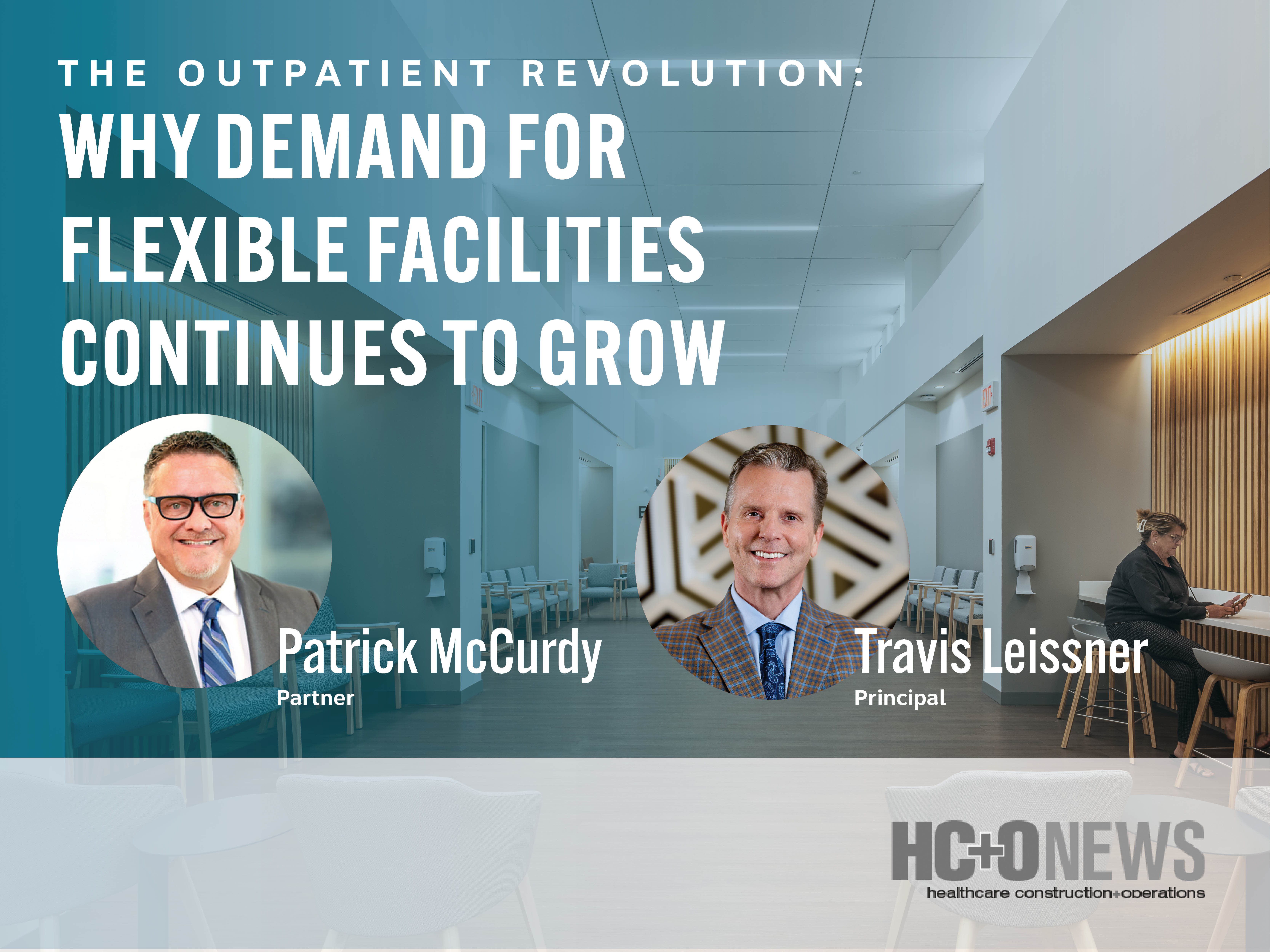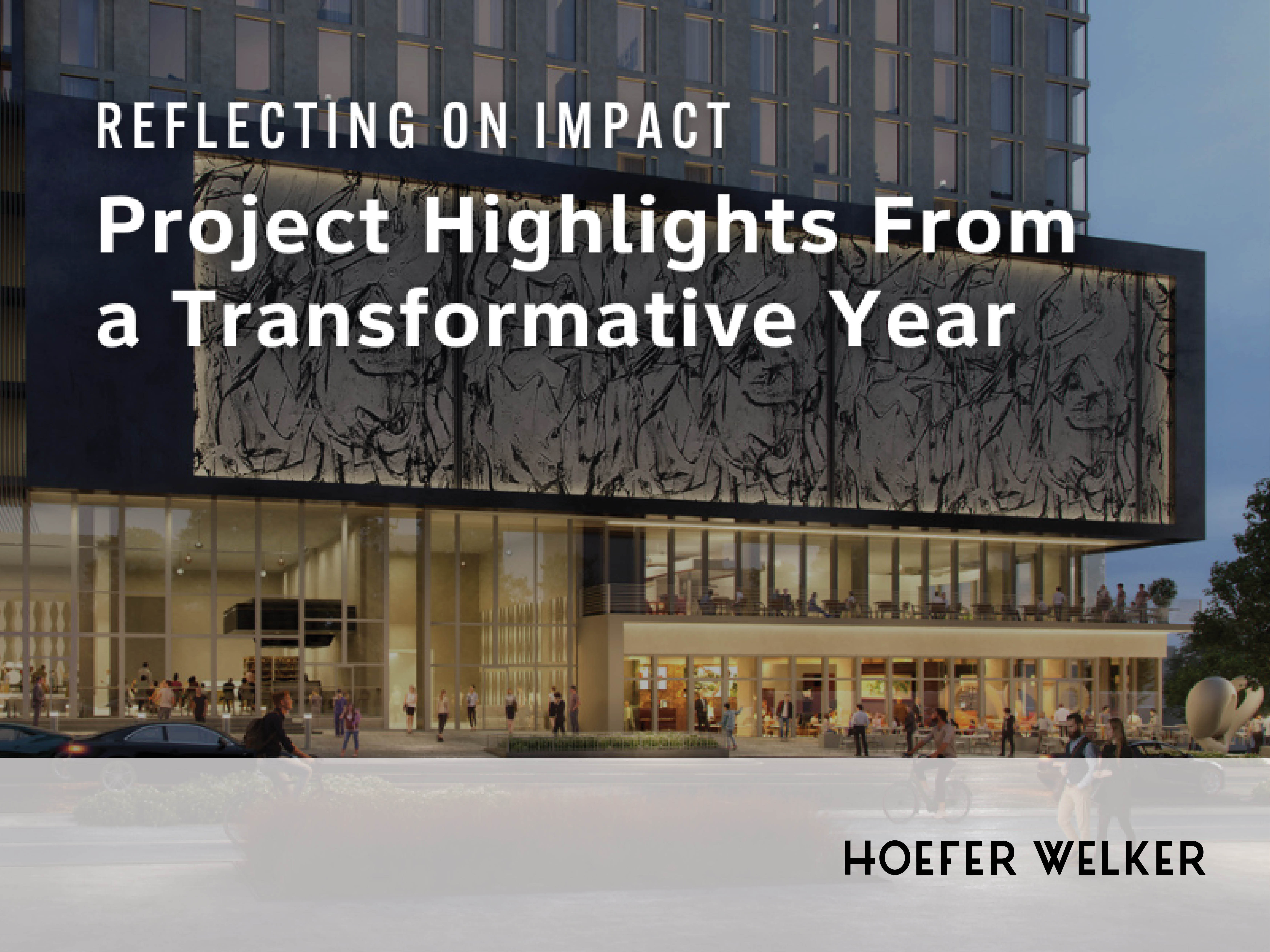The Outpatient Revolution: Why Demand for Flexible Facilities Continues to Grow
In a recent HCO News feature, Patrick McCurdy and Travis Leissner explore how healthcare delivery is rapidly evolving toward accessible, efficient...
2 min read

Diversity, equity, and inclusion (DE&I) and mentorship are pillars for success in high-performing workplaces, yet they can often be overlooked in the day-to-day hustle. In this final blog of our three-part series, we spoke with Haewon Kim-LaBroad about the importance of mentorship and DE&I opportunities in architecture today.
Diversity, equity, inclusion and mentorship are all about bringing people with different backgrounds together to raise the quality of our work. At Hoefer Welker, we focus on making investments to create fair and impartial opportunities for every potential and existing team member. We consciously develop programs and opportunities that allow others to share their unique experience and knowledge. When we give our associates these opportunities, our whole company improves. Having the opportunity to learn from a diverse group of individuals and personal mentors advances individual professional development and group knowledge.
I ask questions and seek clarification to understand a person’s perspective. People come to Hoefer Welker from all kinds of backgrounds. Different racial, ethnic, cultural, or socioeconomic backgrounds within our team inform and contribute to each of our projects. We need to understand what each team member brings to the conversation to collaborate effectively. Asking respectful questions to gain understanding is my first step when working with new colleagues.
The challenges of working on a diverse team are also the positives. New and different ideas that contradict your own can change how you think about certain situations and solutions. While that can be a challenge, it opens a whole world of thinking you would never have had the opportunity to explore. Teams with diverse working backgrounds inform new processes to create excellent work for our clients.
Absolutely. Having a mentor with a similar background and professional focus is especially rewarding. Those individuals can help relate to your struggles at work or, more generally, as a professional in your industry. I’ve been lucky to have these kinds of mentors who have helped me be comfortable showing my true self. I’ve learned I don’t need to try to fit in in every scenario with the people around me. Embracing your uniqueness is a great thing. Creating lasting, meaningful mentor relationships is essential for individuals to continue to learn and grow in their field.
I’ve learned I don’t need to try to fit in in every scenario with the people around me. Embracing your uniqueness is a great thing.
Openness and honesty are key. Mentors need to be ready to give constructive criticism, share their successes and failures, and provide their mentees with information and guidance that will help them grow to the stage in their careers. It is also important to remember that you are not the only one with unique knowledge. Mentors can learn just as much from their mentees’ experience in our ever-changing industry.
Reach out to leaders you admire or who exhibit a growth path or leadership style that mirrors your goals or that you admire. Listening to their stories and hearing their career advice is just the first step. Make actionable plans from what you learn. Keep yourself accountable on your career path and ask for guidance when you find yourself at roadblocks.
Make actionable plans from what you learn. Keep yourself accountable on your career path and ask for guidance when you find yourself at roadblocks.
Start with industry organizations that your peers are a part of. Go to events, participate in discussions, and network with people you meet. Then, find other groups that align with your projected career path or that resonate with your personal goals and passions.

With her two decades of healthcare experience, Haewon is an integral part of the planning and design of healthcare projects of all scopes and sizes. In her time at Hoefer Welker, Haewon has been a critical part of many projects, including the Midwest Transplant Network Organ Recovery Suite and Donor Care Unit Expansion, the University of Kansas Proton Therapy Center, and the Clements University Hospital Expansion on the University of Texas Southwestern Medical Campus. She is the Chair of AIA’s Women in Architecture Network and a graduate of the Dallas AIA Advanced Leadership Program. She is Board Certified by the American College of Healthcare Architects (ACHA).

In a recent HCO News feature, Patrick McCurdy and Travis Leissner explore how healthcare delivery is rapidly evolving toward accessible, efficient...

Hoefer Welker is serving as architect for a proposed 33-story residential high-rise at 16th and Broadway in downtown Kansas City. Developed by EPC...

As we kick off the new year, our team at Hoefer Welker is taking the opportunity to reflect on the excellent year we had in 2025. Thanks to the...